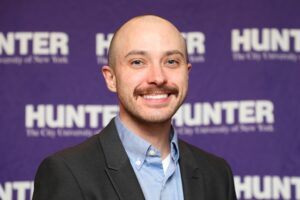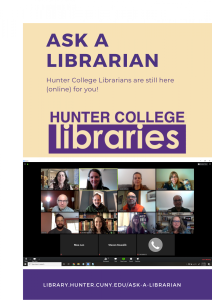Writing a research paper may be getting more difficult for college students as Diversity-related government data disappears from public view. Recent policy shifts under President Donald Trump’s return to office have erased access to key information, particularly related to diversity, equity, and inclusion (DEI), leaving many students and educators concerned about academic freedom and government transparency.

Dorian Onifer, assistant professor and research services librarian at Hunter College, said censorship at the academic level intensified after the Trump administration issued two executive orders targeting what Onifer described as anti-wokeness and going against the radical gender ideology.
“Gender nonconformity or expansive gender expression was really the catalyst for the taking down and elimination, or making it difficult to access information and data,” Onifer said.
Following Trump’s inauguration in January, librarians nationwide began noticing the quiet removal of information from websites managed by agencies such as the Centers for Disease Control and Prevention (CDC), the Census Bureau and the Department of Justice. Much of the content is related to HIV, LGBTQ+ health, and at-risk youth behavior.
DEI programs are aimed at creating a more inclusive and equitable workplace for all, no matter their background. Offering a range of programs and practices, DEI included employee resource groups, accessible workplace accommodations and more. These efforts are especially important for marginalized communities historically been mistreated and have gone through injustices over the years in American history.
Within Trump’s first 100 days back in office, he has unraveled all the effort made to remedy the abuse these groups have gone through in just a matter of weeks.
According to a Reuters article, Hector Sanchez Barba, president and CEO of Mi Familia Vota, a nonpartisan organization that mobilizes Latino voters, “criticized the directives as a ‘white supremacist’s agenda”.
Onifer mentioned similar concerns: “There were references to the fact that racism is real and is happening in our society and impacts individuals, programs, and society on a larger level.”
Still, librarians are fighting back. Tools like the Wayback Machine–a digital library of internet sites and other cultural artifacts in digital form–and the Data.gov archive, created by the Harvard Law Library, are helping to preserve deleted or hidden pages. Since February, according to Onifer, the longstanding Library Association of CUNY has been having active conversations about the very threats to academic freedom and has started sharing resources to help one another through troubling times.
Onifer said the library faculty has met to strategize ways to keep information accessible. So far, they have yet to encounter any information that can’t be replaced.
Students across CUNY are also expressing concern. Jared Rosales Salazar, a 3rd year film student minoring in international studies at City College, said censorship has a direct impact on her academic work.
“Removing content from sites can limit my comprehension and access to learning,” Salazar said.
Already, historically significant information such as a 2019 profile on 10 women who piloted a stealth bomber during key missions in 2002, the crucial job and journey of the Navajo Code Talkers and educational programs providing history of women and people of color in the armed services from the Arlington National Cemetery and much more disappeared from the public eye, in accordance to the Trump administration’s orders.
Jeffrey Dinaburg Nozdrin, a film and media communications student at Hunter, said the government’s inconsistent commitment to truth is deeply troubling.
“To rely on the government to provide the information is such a trust in a system that might as well flip the heads or tails of a quarter to determine if they’ll even respect the importance of the history,” Nozdrin said. “At this rate, even the Civil Rights Movement and slavery are considered ‘too woke’ of a subject to teach in schools in certain places.”
He added, “If we as Americans want to try to find unity and be not so divided, then frankly we should find it wrong to censor information since it steals our right to an actual understanding–even if we disagree.”
Onifer said one of the best steps Hunter College students can take to educate themselves is to enroll in the school’s Library Research course. The class covers research strategies and information literacy concepts, helping students learn how to access reliable information from a variety of sources.

He recalled a recent instance in which content about two prominent Hunter alumnae—Audre Lorde and Pauli Murray—was temporarily removed from the PBS national website. The erasure disrupted his teaching plans for the Library Research course.
“The materials taught Hunter-specific history, the history of New York City, anti-racism, and LGBTQ+ progress,” Onifer said. The materials were eventually restored to the New York City Department of Education website.
When the content returned, he thanked the efforts of individuals committed to preserving accurate and inclusive historical records, mentioning, “It is Hunter’s history, it is student history, it is Black history, and it is queer history.”
Onifer also encouraged students at Hunter and throughout the CUNY system to stay in close contact with their librarians. CUNY students have access to a wide range of support and materials across all CUNY libraries. Through a new partnership, they can also borrow books from State University of New York (SUNY) libraries, in addition to using resources available through the New York Public Library system.

